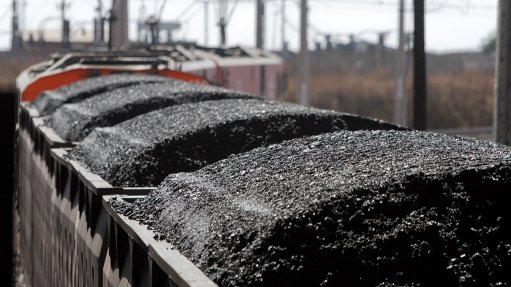Sustaining consulting engineering key to growing economy


REDUCED INNOVATION Consulting Engineers South Africa says unintended consequences of competitive bidding for consulting engineering services are fewer innovation and training opportunities
The objectives of the National Development Plan (NDP) will not be realised unless consulting engineers are more involved in the process, says newly appointed voluntary association Consulting Engineers South Africa (Cesa) president Abe Thela.
Cesa represents in excess of 500 consulting engineering firms and promotes their joint interests; it also provides assurance for clients and assists with infrastructure development and maintenance.
Government, through the NDP, has identified infrastructure as the key to the country’s socioeconomic development, as social and economic infrastructure are services that are essential to a good quality life for citizens, he says.
“But Cesa’s biggest challenge is the way in which consulting engineering services are procured,” Thela says, noting that, before competitive bidding was introduced, consulting engineers appointed to provide professional services to government were remunerated based on fee scales approved by government.
When competitive bidding was initially introduced, bids for consulting engineering service were based on quality, price and broad-based black economic-empowerment points added together. Owing to a result of a court case by a contractor that challenged the inclusion of quality as part of tender award points calculation, a ruling was made that abolished this method in favour of a more price driven method, says Thela.
With the scarcity of work this system has encouraged low priced tenders for consulting engineers to maintain a standing in competitive bidding processes, he explains.
The unintended consequences of a price-driven tendering system are fewer training and innovation opportunities, states Thela, adding that engineers use only successful methods and technologies, even though they may not be cost effective. Despite materials and technologies improving, engineers do not have an opportunity to implement them, as the lack of training and innovation opportunities cause a lack of resources, he says.
Owing to this, Thela says consulting engineers have lost the ability to influence the construction, operation and maintenance phases in a project cycle, adding that reduced costs in the engineering cycle will negatively affect these phases, resulting in an increased infrastructure cost.
“Competitive bidding for consulting engineering services must not be based on price. We believe the process should be governed more by quality, which includes the experience of individuals comprising the firm that is tendering, the relevant experience of the firm and the innovation that they can offer clients.”
Another challenge is how government assesses tenders. “For consulting engineering tenders to be effective, tenders must first be prepared by an experienced and competent technocrat, for example, registered professional engineers and engineering technologists, in government. Consulting engineers can fulfil these roles in instances where government does not have capacity and capability, Thela stresses.
However, he notes that government currently does not have this capacity for these technocrats, particularly at the municipal and provincial levels, where most of the engineering projects are implemented.
Therefore, Cesa has proposed to government that retired engineers and Cesa members, who specialise in skills transfers, assist with the lack of capacity in the interim.
“We have the qualified engineers to provide the training and development that is needed,” says Cesa CEO Lefadi Makibinyane.
“Other countries have strong planning and design procedures, run by competent engineers in government, but South Africa lacks this. It’s a vicious cycle that frustrates the whole industry,” Makibinyane notes.
Infrastructure has been accepted by government as key to unlocking the development of the country, says Makibinyane, noting that, for government to create six-million jobs in the next ten years, as the African National Congress sets out as one of its goals in its 2014 election manifesto, the current implementation of procurement and competitive bidding cannot simply be accepted.
Currently, Cesa member firms employ 23 500 engineers, but Thela and Makibinyane point out that if the economy and gross domestic product is to triple by 2030, owing to the NDP, the engineering industry will need to triple in size.
“To meet the serious social and economic infrastructure needs of the country, as well as the planning and design needs, the industry needs to grow,” says Makibinyane, adding that the growth of the economy can be shown to mirror the demand for consulting engineers.
Cesa members have capacity to deal with the current workload and assist government in building state capacitate, but the capacity of the industry will need to be increased to deal with the demand of the NDP. The bottleneck is the pipeline of engineers from basic educational level to tertiary level, stresses Thela.
However, he says Cesa should be able to deliver on the growth and employment opportunities government expects and hopes will materialise by 2030.
Comments
Press Office
Announcements
What's On
Subscribe to improve your user experience...
Option 1 (equivalent of R125 a month):
Receive a weekly copy of Creamer Media's Engineering News & Mining Weekly magazine
(print copy for those in South Africa and e-magazine for those outside of South Africa)
Receive daily email newsletters
Access to full search results
Access archive of magazine back copies
Access to Projects in Progress
Access to ONE Research Report of your choice in PDF format
Option 2 (equivalent of R375 a month):
All benefits from Option 1
PLUS
Access to Creamer Media's Research Channel Africa for ALL Research Reports, in PDF format, on various industrial and mining sectors
including Electricity; Water; Energy Transition; Hydrogen; Roads, Rail and Ports; Coal; Gold; Platinum; Battery Metals; etc.
Already a subscriber?
Forgotten your password?
Receive weekly copy of Creamer Media's Engineering News & Mining Weekly magazine (print copy for those in South Africa and e-magazine for those outside of South Africa)
➕
Recieve daily email newsletters
➕
Access to full search results
➕
Access archive of magazine back copies
➕
Access to Projects in Progress
➕
Access to ONE Research Report of your choice in PDF format
RESEARCH CHANNEL AFRICA
R4500 (equivalent of R375 a month)
SUBSCRIBEAll benefits from Option 1
➕
Access to Creamer Media's Research Channel Africa for ALL Research Reports on various industrial and mining sectors, in PDF format, including on:
Electricity
➕
Water
➕
Energy Transition
➕
Hydrogen
➕
Roads, Rail and Ports
➕
Coal
➕
Gold
➕
Platinum
➕
Battery Metals
➕
etc.
Receive all benefits from Option 1 or Option 2 delivered to numerous people at your company
➕
Multiple User names and Passwords for simultaneous log-ins
➕
Intranet integration access to all in your organisation



















